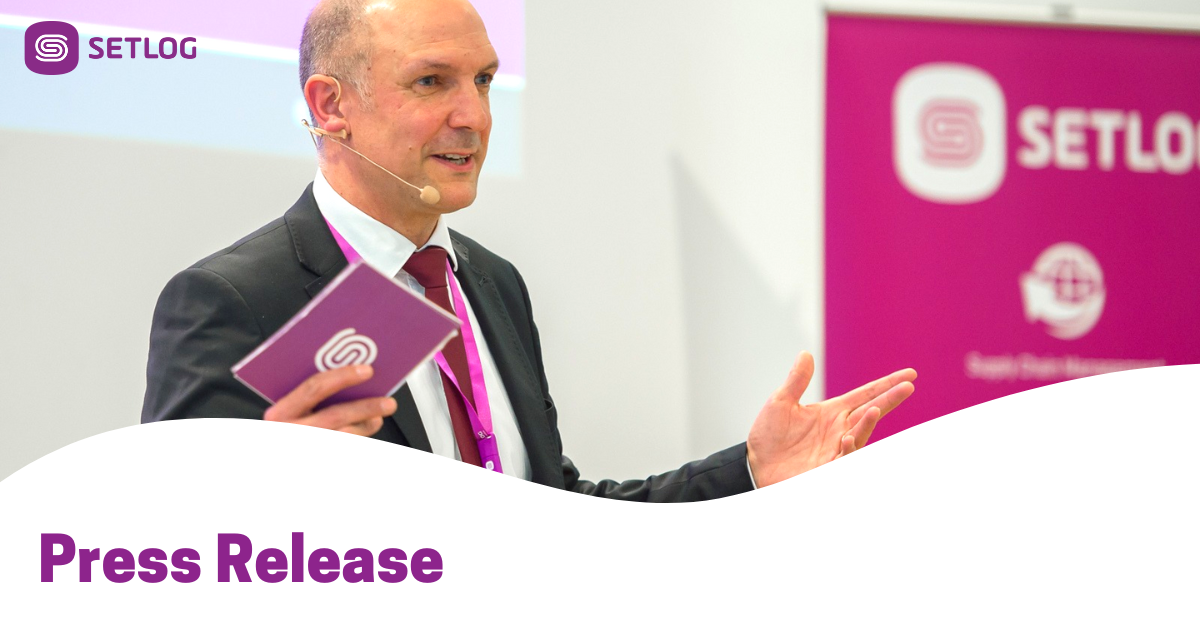Would you share your business data? More than 130 experts discussed this question at the 2nd Setlog/BVL regional group meeting, to which the Bochum-based software house, together with the BVL regional group Ruhr and the LogistikCluster NRW, had invited to the company headquarters on 22 March.
– Digitized supply chains and data sharing become decisive for competition.
– 130 experts at the 2nd Setlog/BVL regional group meeting.

(Bochum, 26.3.2018) Would you share your business data? More than 130 experts discussed this question at the 2nd Setlog/BVL regional group meeting, to which the Bochum-based software house, together with the BVL regional group Ruhr and the LogistikCluster NRW, had invited to the company headquarters on 22 March.
What has long been common practice with Facebook, WhatsApp & Co., still seems a long way off with economic data. But logistics holds one of the largest data treasures in the world, which could fundamentally change the way people and goods move. Provided the data is exchanged and shared, said Professor Dr. Dr. h. c. Michael ten Hompel, director of the Fraunhofer IML in Dortmund. The logistics researcher was convinced that 2018 would be the time for logistics platforms. Although US companies such as Airbnb or Uber already dominate the mobility market for people, the market for logistics and industrial B2B platforms is not yet distributed. The race for the leading logistics platform will be won by those who can combine the best customer benefits and the best database with new business models.
Whether the economy will share its data on platforms in the future depends on the security of data exchange and data sovereignty. In Bochum, Dr. Karsten Schweichhart of T-Systems International GmbH presented the Data Intelligence Hub, a telecommunications hub that allows business data from an individual supply chain to be securely merged with public data such as traffic jams or weather data from various sources and made available for use. Outdoor outfitter Jack Wolfskin is one of the first users of this new business data cloud. The solution, which was developed in cooperation with Setlog, will be presented for the first time at the Hanover Industrial Fair from 23 to 27 April.
Data sharing opens up enormous rationalisation potential and lucrative business models for the economy. This is why SMEs and established logistics providers in particular are called upon to invest in digitization, emphasized Michele Carroll, President of the Council of Supply Chain Management Professionals (CSCMP), who was live from San Francisco. But bits and bytes alone are not enough, because transport will always take place physically. The CSCMP president criticized that so far too little attention has been paid to the role of humans. However, successful supply chains always integrate people as well as the central aspects of optimizing technologies, processes and goods flows. Digitisation concepts that do not involve people are doomed to failure.
In many cases this is not the case at all. In practice, companies often lack the basic knowledge on digitization, big data and supply chain management and, as a result, the imagination for a digital business model, reported Ralf Düster, host and managing director of Setlog. In addition, the technology is currently developing faster than its use. The latter applies not only to the use of hardware such as drones or “intelligent” containers, but above all to the digitization of processes. Even highly complex supply chains are still planned with Excel and e-mails. “Those who do not digitize their supply chain will find it difficult to survive in competition for the next ten years,” predicted Düster. Only with automated supply chains will companies be able to keep pace with the ever faster product cycles and at the same time leverage significant optimization potential.
Marvin Beitzel, Senior Planner Supply Chain at the fashion label Marc O’ Polo, reported on how a digitized supply chain can look in practice and what benefits it brings. The company rolls out up to 12 collections annually. 2,500 articles and 8.3 million garments, which are manufactured by around 100 manufacturers in 10 production countries, must arrive punctually in thousands of stores worldwide. For several years, the fashion label has relied on the SCM platform OSCA for this purpose. From production sites to testing institutes to logistics service providers, all supply chain partners involved in an order work on one platform and are informed in real time about all activities or can view documents. The new transparency has paid off: not only have workflows been accelerated and standardized, but costs have also fallen significantly. Expensive air freight has been reduced by almost a third, while sea freight has increased by 50 percent.
Contact us
Nora Breuker, Digital Marketing Strategist
Setlog GmbH, Alleestraße 80, 44793 Bochum, Germany T +49 234 720 285 78, n.breuker@setlog.com, setlog.com
About Setlog
Setlog Holding is a provider of tailor-made Supply Chain Management (SCM) solutions. The central product is the cloud-based SCM software OSCA, which is used by over 150 brands in the clothing, electronics, food, consumer goods and hardware sectors.
is. OSCA enables companies to network with their customers, suppliers and service providers to optimize their supply chain, accelerate processes and manage supply chains efficiently.
Setlog GmbH is a 100% subsidiary of Setlog Holding AG. The company was founded in 2001 and is today one of the leading providers of SCM software with over 15,000 registered service providers and 35,000 users in 92 countries. The software house employs 60 people in Bochum (headquarters), Cologne and New York. www.setlog.com
